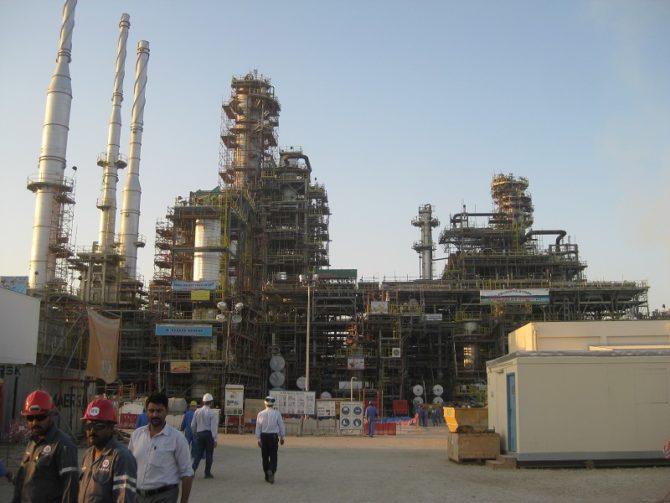Bahrain Lube Base Oil Co. in Sitra, Bahrain, has been churning out API Group III base stocks since 2011. It’s clear who operates the plant and also who sells the base stocks that it produces.
What’s unclear is the ownership of the facility – or at least who owns a 45% share of it. Neste Corp. did at least up until October when it signed an agreement to exit what had been a joint venture with Bahrain Petroleum Co. and National Oil and Gas Holding Co., Bahrain’s energy investment and development arm.
Neste, which is headquartered in Espoo, Finland, said it was exiting the joint venture coincident with the sale of its base oil business to United States energy company Chevron. Under the latter deal, Chevron acquired sales and marketing operations and rights to Neste’s Nexbase base oil brand, including finished lubricant approvals. The deal also included what the companies called a “long-term” supply agreement whereby Chevron will receive base oils that Neste produces at its plant in Porvoo, Finland. That plant is part of a larger fuels refinery that Neste retains.
On April 1, Neste and Chevron announced that the deal had closed, after it passed scrutiny of European Union competition authorities. However, Neste refused last week – as it had in October – to say how or to whom it divested its ownership stake in the Sitra joint venture. Chevron also declined to comment, and Bapco has not responded to several inquiries.
Bapco was and remains the operator of the plant, which is within a fuels refinery that it wholly owns. From the time of the plant’s opening 11 years ago, Bapco owned 27.5% of the joint venture, as did Nogaholding. The plant has capacity to produce 400,000 metric tons per year of Group III oils.
The question mark about its ownership makes the Sitra facility perhaps unique among the world’s base oil plants. Lubes’n’Greases monitors approximately 200 mineral base oil plants around the globe, including ones that have closed, and the ownership of each is public knowledge. It is also quite unusual for a business to divest a stake in a joint venture, as Neste has, without stating who acquired it.
While stating that it signed an agreement to exit the joint venture with Bapco and Nogaholding, Neste has not said whether that agreement has been finalized or when the transfer of its ownership stake would or will become effective.
It’s conceivable that one or both Bahraini partners bought Neste’s stake. Bapco’s interest in the operation broadened since the plant opened. For the first several years, under the original partnership agreement, Neste had rights to market all of the base stocks produced at the plant. That marketing agreement broke down in 2017, leading to a new deal that gave Bapco rights to 55% of the output.
Bapco now markets its own base oils, largely through a group of distributors including Shell Trading and Shipping Co.
It also would not be unheard-of for Neste to sell its ownership stake to a third party refiner, oil products marketer or an investment firm. In the United States for example, Flint Hills Resources became a partner in the Excel Paralubes base oil business in 2003 when it bought a 50-percent stake being divested by Shell. Flint Hills remains a partner in that business with the other original co-owner, ConocoPhillips.
If Neste’s stake was acquired by a third party, that entity is now the largest shareholder in the Sitra joint venture.
The receiver of Neste’s stake also may be in a contract to supply Neste’s former share of the of Sitra base oil output to Chevron. The U.S. company has emphasized that its transaction with Neste will not cause changes for Neste’s former base oil customers; Chevron said it will honor contracts and maintain distribution arrangements and customer services. It also said it will continue supplying the base oils Neste supplied from Sitra, stating that it has off-take agreements for that location as well as Porvoo.
The reference to plural agreements suggests that the Sitra off-take may have been arranged with a party other than Neste or at least through a separate deal.
Neither Neste nor Chevron disclosed terms of the off-take agreements, including duration.
Chevron also continues to make Group III oils marketed under the Nexbase brand at its plant in Richmond, California, as it has for the past several years under a production agreement with Neste.

Photo courtesy of Bapco